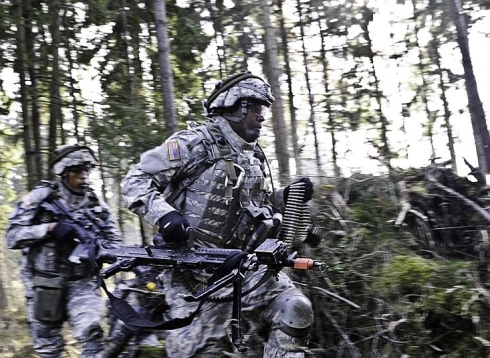
From Nancy Montgomery, Stars and Stripes: On April 8, the Defense Department announced that one of the Germany-based “heavy” brigades — currently the 170th Infantry Brigade Combat Team based in Baumholder and now in Afghanistan; and the 172nd IBCT based in Grafenwöhr and Schweinfurt and expected to deploy to Afghanistan this summer — would be withdrawn from Germany and returned to the United States. …
The move would mean one-quarter of remaining U.S. combat soldiers, and one-half those with tanks and artillery — some 5,000 men — would be gone from Europe. …
Guy Ben-Ari, deputy director of the Defense Industrial Initiatives Group at the Center for Strategic and International Studies, also said the brigade’s removal sent an unfortunate message. But for the opposite reason.
“It’s an indication that the U.S. is not stepping up to provide any leadership and coordination,” Ben-Ari said. “In fact, it’s stepping away.”
“I don’t think the new global security environment is one that lends itself to a smaller U.S. presence. The U.S. is the No. 1 beneficiary of a more stable security environment for economic, political and geographical reasons,” he said.
Moving the brigade would weaken the NATO alliance, said Ståle Ulriksen, chair of the Security and Conflict Management Department at the Norwegian Institute of International Affairs in Oslo. Norway, for instance, went to Afghanistan, like the other European nations, “to show solidarity and to stay on the good side of the U.S. — to be an ally,” he said.
Ulriksen said that “free-riding” on the U.S. had enabled Europeans to avoid devising their own coordinated defense structures and that they should “grow up and take responsibility.”
But he also said a European alliance was hard to imagine without the U.S. as leader.
“It’s a kind of a comfortable situation. You have a leader no one disputes,” he said. “What would be the alternative — the British? The French? The Germans?” (photo: Stars and Stripes)
Image: starsnstripes%204%209%2011%20USAREUR%20170th.jpg
